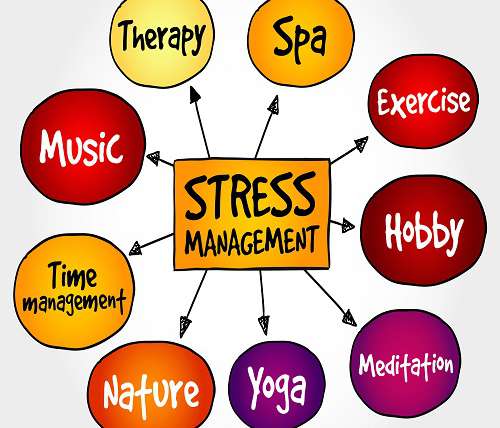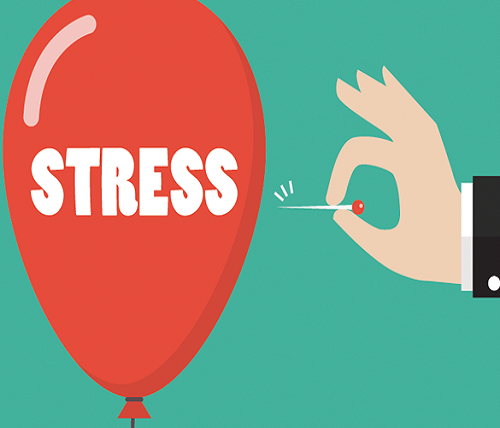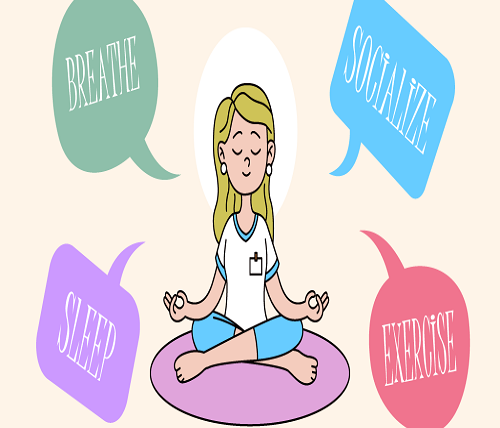How to Manage Your Everyday Stress – Part Three
Overview
My name is Kishore Chandiramani and I work as a psychiatrist in Staffordshire, England.
We are going to talk about how to manage your everyday stress Part Three.
I am going to discuss a model of mind that can help us make sense of our stress and its management. I would like you to visualise your mind in terms of two broad categories:
- Experiencing self.
- Observing self.
This concept has been taken from psychoanalytic traditions in scientific psychology.
The experiencing self is a part of your mind that is involved in experiencing an emotion and this experience can happen in terms of thoughts, emotions, impulses, images, ideas, motivations, etc. It is the part of your consciousness that is taken up by the experience.
However, there is another part of the mind that doesn’t get sucked into the actual experience and it has the ability to observe one’s self having that experience.
It is quite possible that at a given moment I am fully submerged in an experience for e.g. enjoying a delicious food, but there may also be moments when I suddenly become aware that I am enjoying a meal at the same time and enjoying the experience, so a part of my mind has started watching myself having that experience. Since this observing self doesn’t get sucked into the experience it neither suffers the emotion nor enjoys it, it remains detached from the suffering or happiness. It simply observes.
If we try to analyse deeply we will find that this observing self can also be divided into two parts, the first one that works as an internal critique it makes judgements constantly in terms of desirable, undesirable, right, wrong, to carry on, to stop but there is another aspect of this observing self which remains emotionally neutral, detached. It doesn’t think or make judgement, it doesn’t react emotionally, it doesn’t get affected by the nature of the experience but its constantly observing very much like a mirror, a mirror doesn’t make a judgement about your appearance but tells you everything about your appearance. A mirror doesn’t react emotionally to whatever is being reflected no matter how horrible or enjoyable the experience is.
So we have an observing self which is like mirror, we can extend this concept further by saying that the inner judging self can also work like a torch just as a mirror doesn’t make a judgement a torch also doesn’t make a judgement, a torch doesn’t react emotionally to what is being reflected on, but it helps at every step in making the right judgement in reacting emotionally in a very appropriate manner if we have the light available to us whilst we are observing.
So I want you to imagine the two parts of your mind along these lines and for a minute I want you to merge the experiencing self and the first part of the observing self which works as an internal critique as one single unit and second part of the observing self which is simply watching and not reacting emotionally as the other part of your mind.
Now let us redefine the boundaries, the first part of the mind is experiencing an emotion and constantly making judgements and reacting emotionally to it and trying to control or not control a particular emotion let us call it thinking, judging, feeling and reacting part of the mind and the other part of the mind would be emotionally neutral, equanimous, non-reacting, non-judging consciousness, which stays in the background all the time.
Now this thinking, judging, feeling, reacting part of the mind is constantly involved in the drama of the external world, the life we live in the real world. At every step it is experiencing an emotion, its reacting emotionally, its making judgements and its acting in an appropriate manner and in the process it thrives on the old experiences, thoughts and emotions and in the process creates new thoughts and emotions. This part of the mind is required to live normally in the external world it’s like you are using your car, laptop, watch, mobile smart phone, glasses, table lamp to lead a normal life but when you want to relax you lie in bed under a duvet, close your eyes, you don’t need your car, mobile phone, laptop, glasses etc.
That’s the time you connect with the second part of your mind which is emotionally neutral, non-reacting, non-judging, non-thinking part and that brings all suffering to an end i.e. when going to deep sleep. I am not talking about the dream state because whilst you are dreaming your thinking, judging, feeling, reacting part of the mind is still active and its creating new emotions and suffering. Its only when you are in deep sleep that all suffering ends and you are thinking, judging, feeling, reacting part of the mind is silenced and you connect with that emotionally neutral consciousness.
A connection with this emotionally neutral conscious is very essential for stress management. It can happen in deep sleep but can happen during daytime as well, there are short moments when you see yourself cut off from the politics of the mind and feel connected with the moment without having any strong thoughts and feelings but at the same time experiencing deep inner peace and tranquillity.
© Kishore Chandiramani, Consultant Psychiatrist
Emotions Clinic, Education and Training Centre Cic, Staffordshire, England
www.undoyourstress.com
Image courtesy: https://b2bchief.com/nostalgia-marketing-in-2021/





